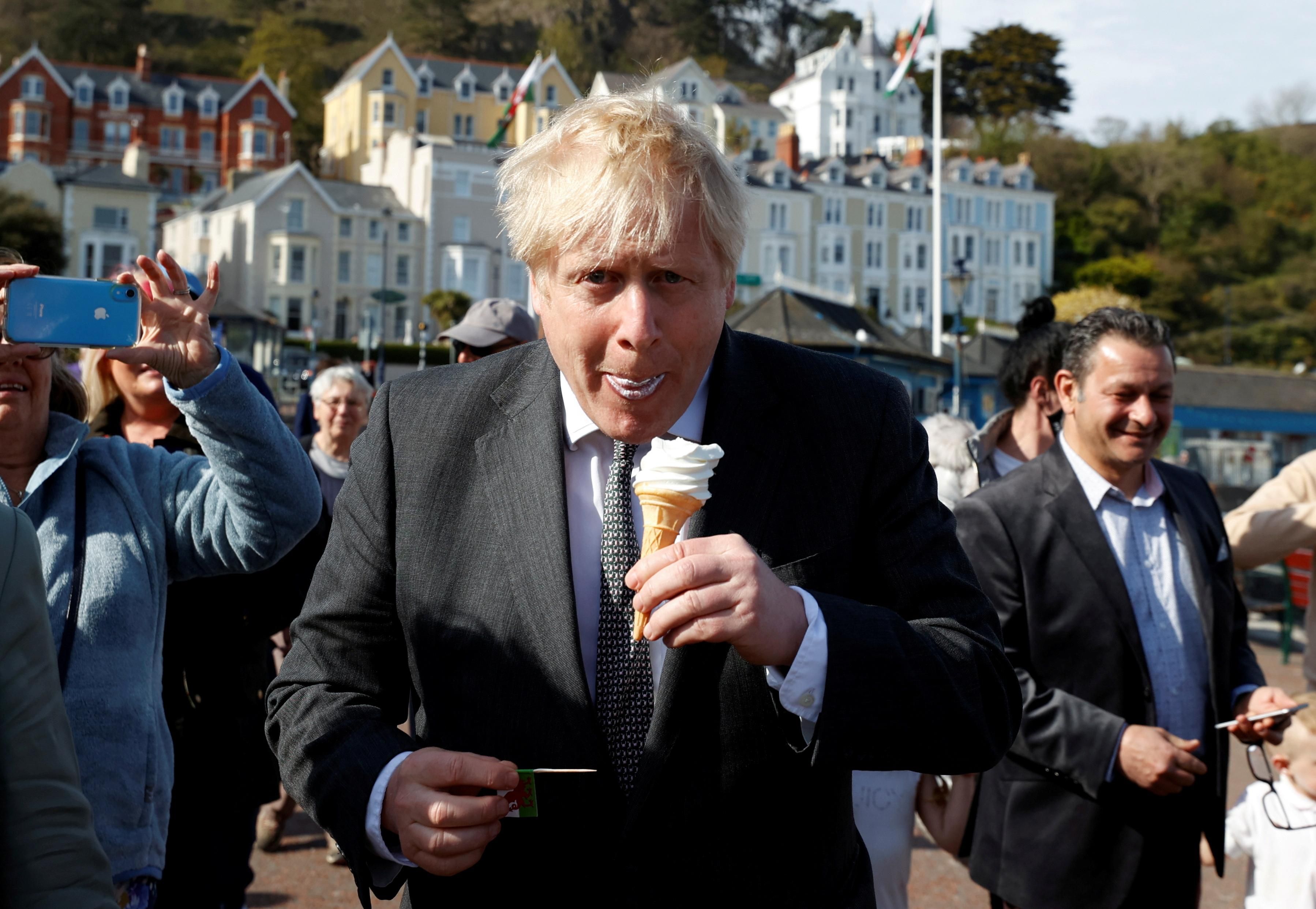US & Canada
April 28, 2021
Boris Johnson's big mouth: Boris Johnson is no stranger to controversy over crazy things that he's said — his perilously off-the-cuff style is part of his political brand. But the British PM is currently under fire over reports that he told advisers last fall he was prepared to "let the bodies pile high in their thousands" rather than impose another lockdown in the UK. Johnson denies it, but the BBC journos who reported the story are standing by it. The flap comes right as Johnson is also being accused — by his estranged former chief advisor Dominic Cummings — of having used campaign donations to refurnish his Downing Street residence. The clash between Johnson and Cummings, who is still influential among Johnson's own Tories, centers on Cummings' accusation that the PM's handling of the pandemic was incompetent. A swift vaccine rollout has helped the polarizing Johnson claw his way back to 51 percent approval rating in recent weeks — whether these latest antics and scandals will hurt his support remains to be seen.
Washington fears Taliban attacks: The US State Department on Tuesday instructed all non-essential personnel to vacate the US Embassy in Kabul and make their way back to the US. Washington reportedly fears an uptick in Taliban violence just weeks after President Biden announced that the long-anticipated withdrawal of the remaining 2,500 US troops from Afghanistan would be completed by September 11, 2021. Taliban militants have threatened to wreak havoc if Washington doesn't stick to the original plan — agreed to by the Trump administration — of leaving by May 1. Meanwhile, the withdrawal plan has sparked a contentious debate in the US: Some politicians, like Congressman Mike Waltz (R-FL), who served multiple tours in Afghanistan, say a hasty US withdrawal will enable a violent Taliban takeover, endangering both Afghans and Americans. But Secretary of State Antony Blinken says that the US is committed to moving ahead with the withdrawal immediately, noting that "free riders" in the region need to step up and take a more active role in keeping Afghanistan stable (seems like he's talking to you, Pakistan).
Back from the brink in Somalia: A crisis in Somalia appears to have been averted, at least for now. President Mohamed Abdullahi Mohamed's term in office ended in February, but elections for the legislators who would choose a new president were delayed by a dispute between the federal and regional governments. The lower house of parliament recently voted to extend Mohamed's term by two years. When the Senate rejected this idea, security forces divided into rival factions and appeared ready to shoot it out in the streets of Mogadishu. Clashes last weekend forced tens of thousands from their homes. But Mohamed announced on Wednesday that he will appear before congress on Saturday to make his case for a term extension, a signal that he would accept its final decision in order to avoid bloodshed. That's especially good news since al-Qaeda-affiliated al-Shabab fighters in Somalia have exploited unrest in the past to launch terrorist attacks across the country. We'll be watching to see if Mohamed submits to the will of parliament and the country can move to elections as soon as possible.
More For You
41.5%: The proportion of Havana’s garbage trucks that were operational this month, according to state-run media, as Cuba’s fuel crisis prompts a garbage crisis.
Most Popular
- YouTube
Sovereignty has become one of the most powerful, and least defined, words in tech policy. At the 2026 Munich Security Conference, SAP global head of government affairs, Wolfgang Dierker, explains why governments and enterprise customers are demanding more control over their data, cloud infrastructure, and AI systems amid rising geopolitical uncertainty.
- YouTube
On the sidelines of the 2026 Munich Security Conference, Annemarie Hou, Executive Director of the United Nations Office of Partnerships, joined Tony Maciulis to discuss the power of women leaders in global decision-making.
Security in a fragmented world: Cyber deterrence, NATO reform & the future of trusted tech
Feb 14, 2026
- YouTube
In a new Global Stage livestream from the 2026 Munich Security Conference, New York Times White House and national security correspondent David Sanger moderates a conversation with Ian Bremmer (President & Founder, Eurasia Group and GZERO Media), Brad Smith (Vice Chair & President, Microsoft), Benedetta Berti (Secretary General, NATO Parliamentary Assembly), and Wolfgang Dierker (Global Head of Government Affairs, SAP) on how technology and defense are colliding in real time.
© 2025 GZERO Media. All Rights Reserved | A Eurasia Group media company.
